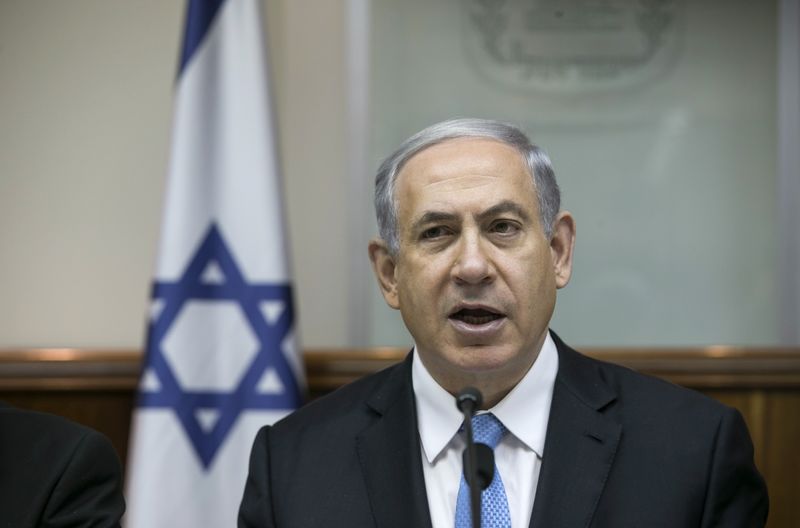By Dan Williams
JERUSALEM (Reuters) - Prime Minister Benjamin Netanyahu defended on Sunday a planned speech to the U.S. Congress about Iran, saying he had a moral obligation to speak out on an issue that poses a mortal threat to Israel.
His visit to Washington in March has opened up a rift with the White House and has drawn accusations in Israel that Netanyahu is undermining the country's core foreign alliance in an effort to win an election due two weeks after the trip.
Briefing his cabinet on the March 3 speech to a joint meeting of Congress, Netanyahu said his priority was to urge the United States and other powers not to negotiate an Iranian nuclear deal that might endanger Israel.
"In coming weeks, the powers are liable to reach a framework agreement with Iran, an agreement liable to leave Iran as a nuclear threshold state," he said in remarks carried by Israeli broadcasters.
"As prime minister of Israel, I am obligated to make every effort to prevent Iran from getting nuclear weaponry that will be aimed at the State of Israel. This effort is global and I will go anywhere I am invited to make the State of Israel's case and defend its future and existence."
John Boehner, the Republican speaker of the House of Representatives, invited Netanyahu without informing the Obama administration, in what the White House deemed a breach of protocol.
Barack Obama, who has a testy relationship with the right-wing Netanyahu, will not meet the Israeli leader during the visit to Washington, his office said. This decision was widely portrayed in the Israeli media as a snub.
The White House has cited the proximity of Israel's March 17 election and a desire to avoid the appearance of influencing the poll as reason for withholding an Oval Office invitation.
There had also been contacts for a possible meeting between Obama and Israeli President Reuven Rivlin, who is visiting the United States this week to address a United Nations Holocaust commemorations event.
But Rivlin's spokesman Jason Pearlman and White House National Security Council spokesman Alistair Baskey said there would be no meeting, citing scheduling conflicts.
The Israeli presidential job is largely ceremonial rather than political, and Rivlin is not up for re-election in March.
White House Chief of Staff Denis McDonough, asked on CNN's "State of the Union" program on Sunday about the controversial Congress invitation to Netanyahu, said the Obama administration did not want to get into a "blame game" over the issue.
"Let's take a step back: This is the most important relationship we have in the world. This is something that ought to be and will continue to be, as far as we are concerned, above partisan politics," he said, referring to U.S. ties with Israel.
The relationship, McDonough said, "stretches across many different things: from values, straight through intelligence cooperation, to defense and security assistance."
Six world powers -- the United States, Britain, China, France, Germany and Russia -- have given themselves until the end of June to produce a diplomatic breakthrough with Iran and end a long-running dispute over Tehran's nuclear ambitions.

Republican Senator John McCain said on the CBS program "Face the Nation" that Israeli-U.S. ties were "never worse," suggesting that for these reasons he thought "it's important that Prime Minister Netanyahu speak to the American people."